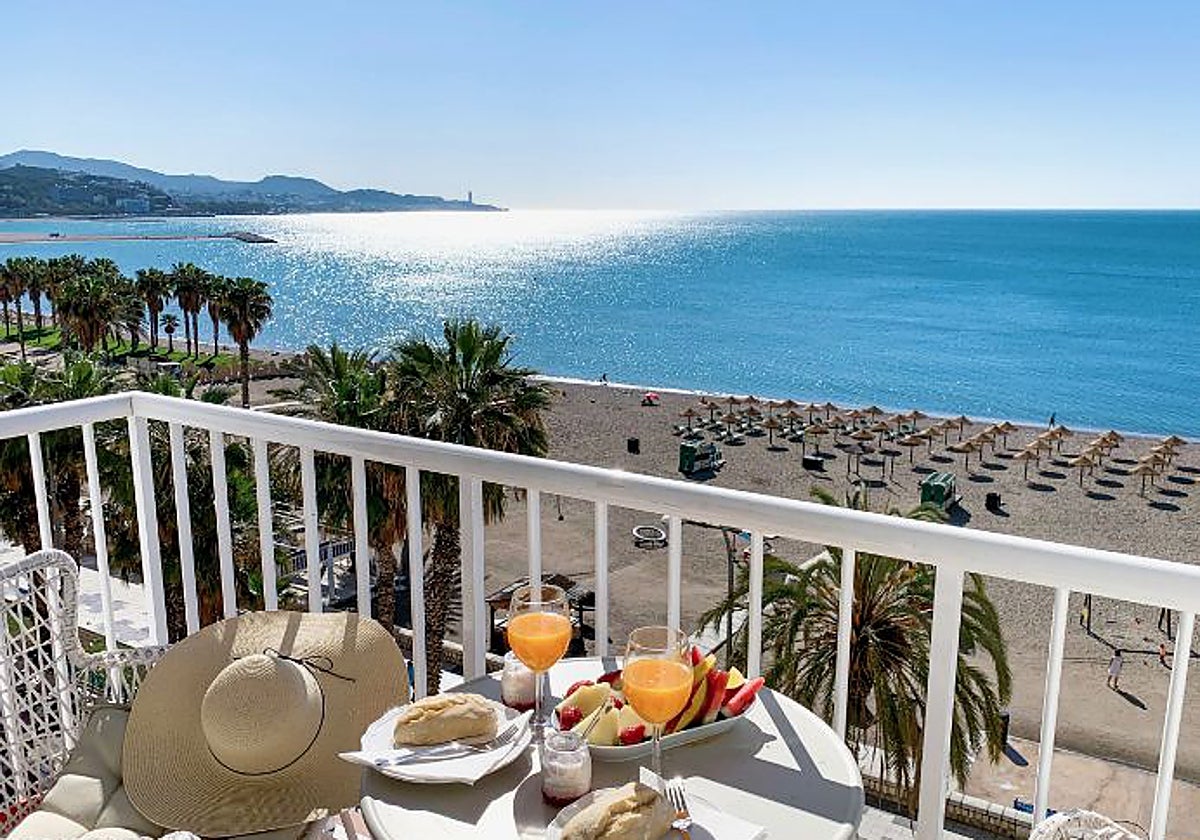Andalucía's association of tourist property owners launches counterattack in Malaga
Formal objections have been raised to the recent ban on the licensing of new holiday rentals in 43 'saturated' areas in the capital of the Costa del Sol
The Andalusian tourist housing association Avva-Pro is fighting back and is presenting objections to Malaga city council's earlier approval to modify the PGOU general urban development plan, prohibiting the licensing of new holiday rental properties in 43 areas of the capital of the Costa del Sol. Avva-Pro's president Juan Cubo has asserted that "this measure is arbitrary, lacks solid legal and economic foundations and could generate legal uncertainty for the owners and managers of these properties."
The association has pointed out that this modification ignores the reality of the market, as well as not clearly defining the urban use of these tourist homes, nor establishing an appropriate administrative procedure for regulating them. In addition, he pointed out that the factors that really impact on the housing problem in Spain are the lack of construction of new housing, the management of properties that are left empty and the insecurity of owners to enter the long-term rental market.
It is worth remembering that it was on January 13th that the official provincial gazette (BOP) published the initial approval of this modification to the PGOU. The change enables the zoning of the city by limiting new holiday rentals in those districts where these properties already exceed 8% of the total residential stock.
Avva-Pro has pointed out that the city council's proposal has no conclusive studies demonstrating a direct relationship between holiday rentals and problems such as rising housing prices, clashes between residents and tourists or job insecurity. "We understand the importance of balancing tourism development with the protection of access to housing, but any regulation must be backed by objective data and well-founded measures. In this case, restrictions have been imposed without a comprehensive analysis of the impact of tourism in the city", explained Cubo, who stressed that the objections presented by his association are aimed at ensuring that "the regulation complies with the principles of suitability, proportionality and legal certainty." In this regard, he made it clear that this measure would discriminate against tourist accommodation by imposing restrictions only on this type of accommodation, while other types of tourism, such as hotels, hostels or tourist flats, are not subject to similar limitations.
13,000
tourist homes in the city are registered on the Junta's official tourism register.
Cubo warned that the regulations do not clearly define the urban use of these holiday rental properties, nor do they establish an adequate administrative procedure for their regulation, which generates legal uncertainty for owners. "Restricting this economic activity could violate regional and national legislation on market unity and free competition, putting the economic activity of the sector at risk," he added. He then called upon city hall to review this proposal and find solutions to balance tourism development with the protection of access to housing.
Moreover, he brought up "another alarming aspect of the City Council's proposal" as being the fact that it is based on static data and does not contemplate any mechanism for securing a more dynamic review that would allow the restrictions to be adjusted according to how the market evolves. "In some districts the suspension of licences has been decided without a clear, objective justification, applying disproportionate measures that could be challenged due to their lack of technical and legal basis," said Cubo.
He went on to insist that "tourism represents a fundamental, economic engine for Malaga and the whole of Andalucía. Tourist housing has allowed the city to accommodate a tourist profile that wishes to live an experience of integration into local life, increasing the average length of stays and benefiting local sectors. Limiting the development of this type of accommodation without a complete and consensual regulatory proposal could affect the image of the city as an open and accessible destination for all types of visitors."
Cubo reiterated that the supply of holiday rentals in Malaga city applies to only 2.68% of the total number of properties, while the percentage of unoccupied, vacant properties in the city is significantly higher at 6.4%. There are currently some 13,000 holiday homes in Malaga city registered with the Junta de Andalucía's official tourism register.

